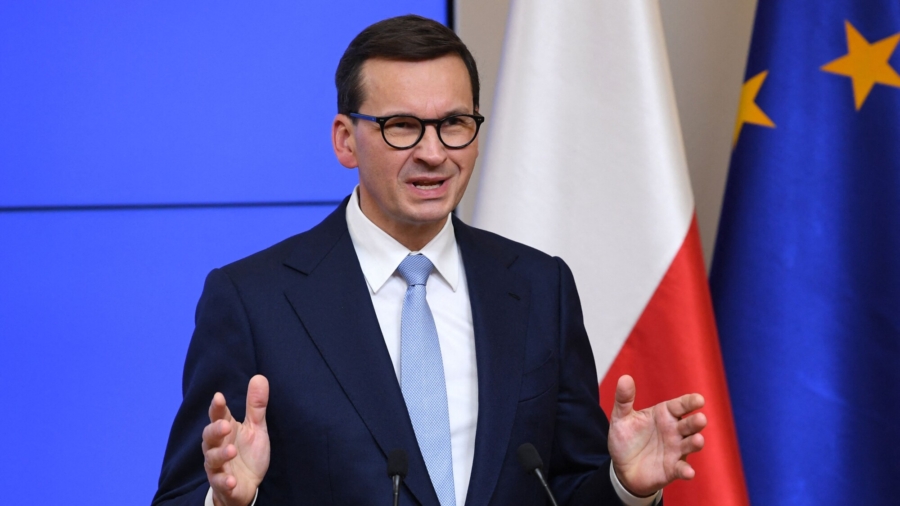The Biden administration announced Monday that it is offering a $2 billion loan to Poland—which has served as a hub for weapons going into Ukraine—to support the American ally’s modernization of its defense forces.
The State Department said in a statement that Poland is a “stalwart” ally of the United States, and that its “security is vital to the collective defense of NATO ’s Eastern Flank.” The statement added that funding of this kind is reserved exclusively for Washington’s most important security partners.
The State Department said that the U.S. government will also shoulder up to $60 million of the cost of the loan in Foreign Military Financing, thus securing favorable loan conditions and facilitating “urgent procurements of defense articles and services from the United States.”
Poland, liberated in 1989 from 5 decades of Moscow’s rule when the Soviet Union collapsed, has been a staunch supporter of Ukraine since the beginning of the Russian invasion.
Poland has supplied Ukraine with large numbers of its own tanks, fighter jets, and other military equipment, while serving as a supply base for most of the Western weapons and supplies going into Ukraine.
Recently, however, the Polish-Ukrainian relationship has been strained by a trade dispute centered on Ukrainian grain entering the Polish market, which observers said was driving down the prices Polish farmers could get for their cereals.
The significant volumes of Ukrainian grain reaching central Europe are the result of Russia’s invasion, which has disrupted Black Sea shipping routes. This, in turn, has forced the Ukrainian government to seek alternative overland export routes for its agricultural produce.
Poland’s Prime Minister Mateusz Morawiecki had previously warned Ukrainian authorities about the influx of grain, threatening to add additional products to the import ban if the grain issue were not resolved.
“Ukrainian authorities do not understand the degree to which Poland’s farming industry has been destabilized,” he said.
Mr. Morawiecki further announced on Sept. 20 that Poland would no longer send any more weapons to Ukraine, but was now focusing on arming itself—raising further concerns among the Western alliance against Russia.
“If you want to defend yourself, you have to have something to defend with,” the Polish Prime Minister said, referring to the possibility of a Russian attack on his nation.
Analysts noted that Poland has very likely already given Ukraine most of what it had to give in terms of military equipment—much of which was based on older, Soviet-era technology.
Poland has recently been upgrading its weapons systems to replace what it gave away, putting in orders with U.S. and South Korean defense companies.
Just last month, the U.S. approved a $4 billion air-and-missile defense systems sale to Poland, following a similar $15 billion deal in June.
U.S. officials have sought to downplay the grain dispute, praising Poland’s role in helping Ukraine and noting that it is in Poland’s strategic interest for Ukraine to prevail in the conflict against Russia.
The Associated Press contributed to this article.

